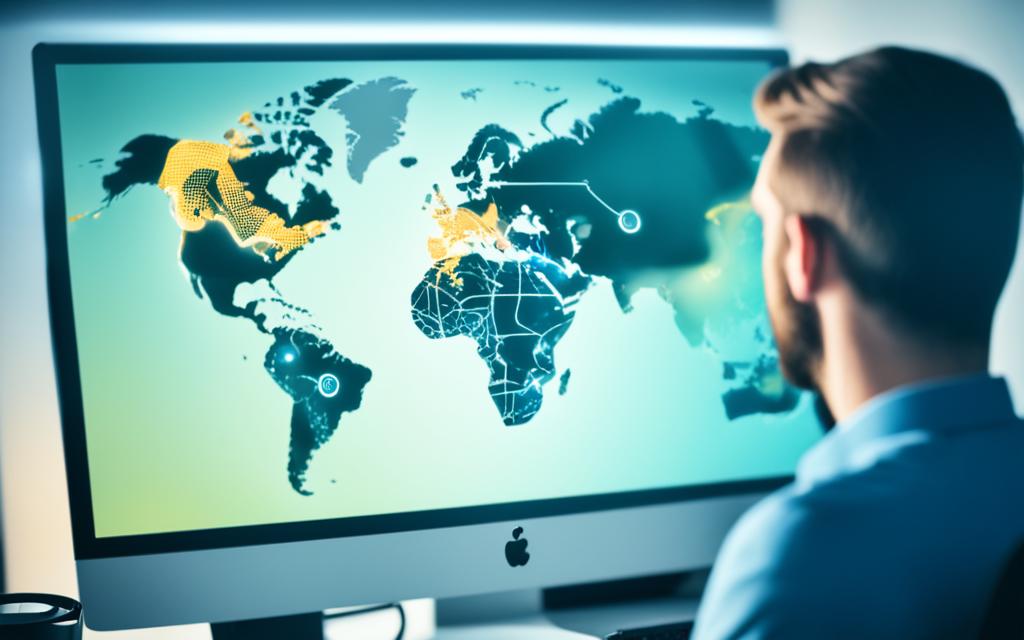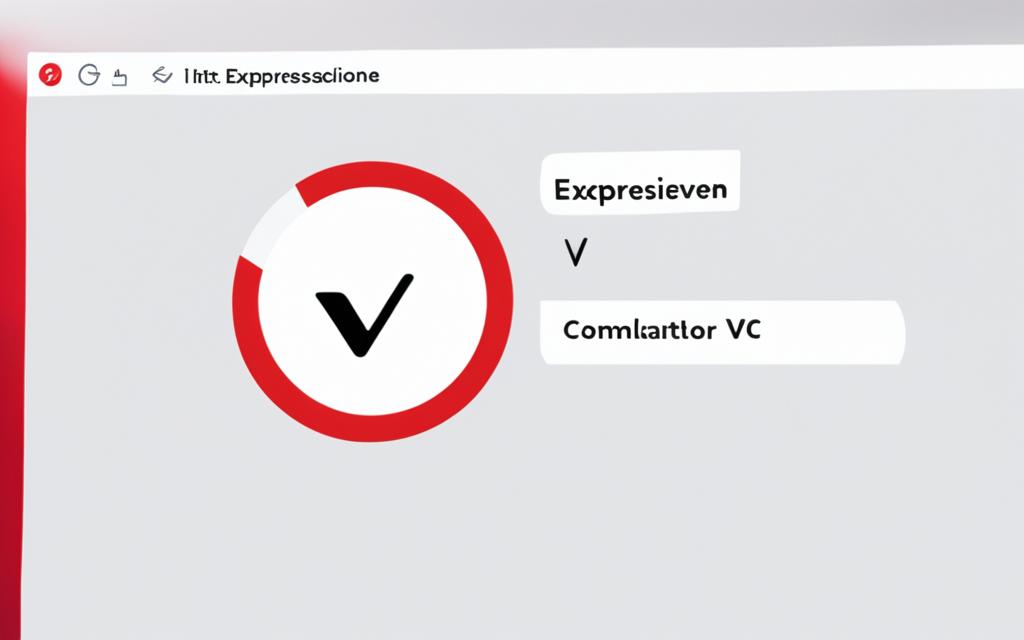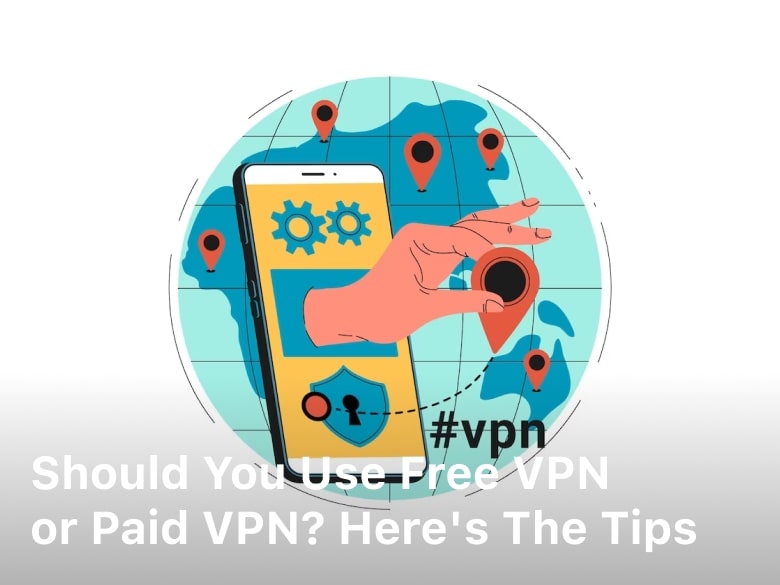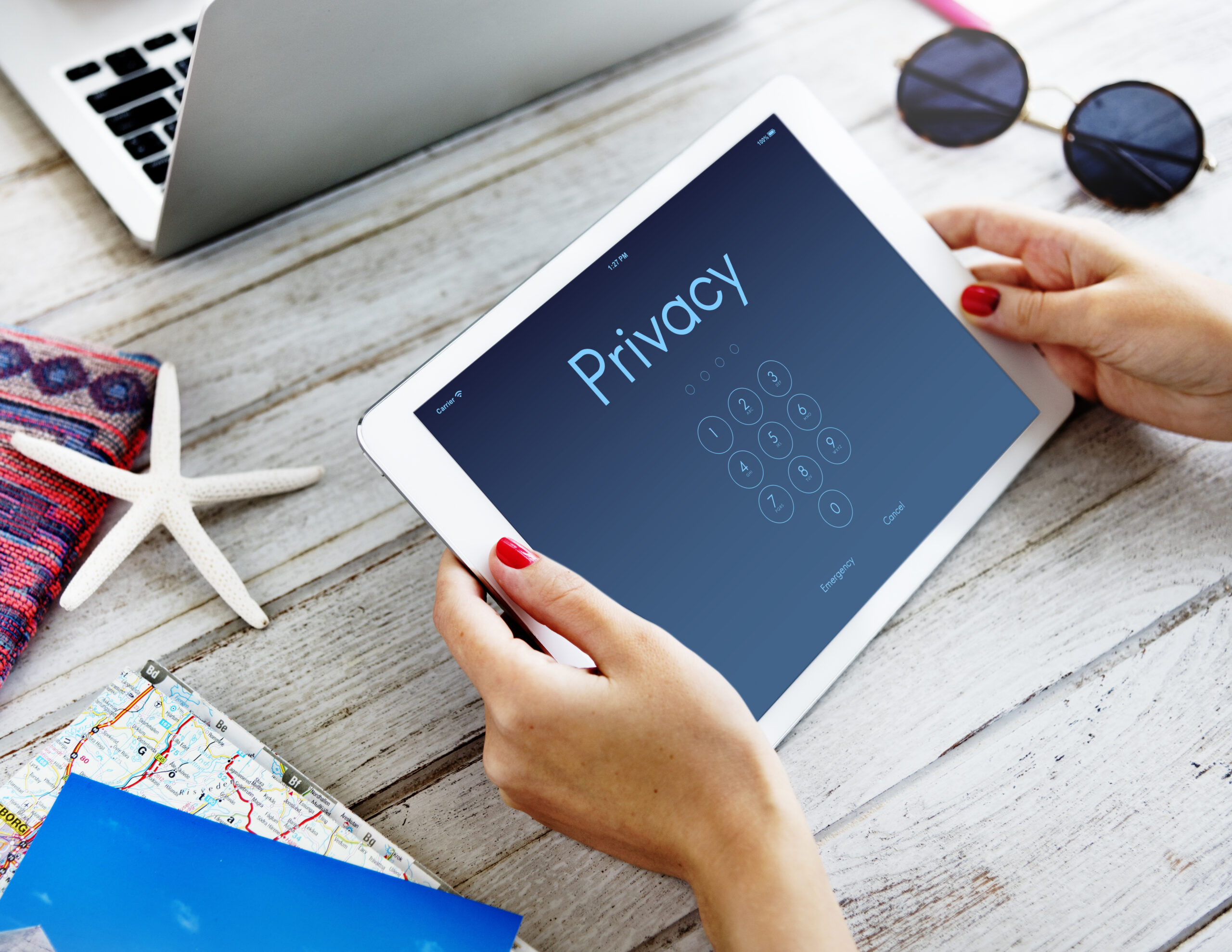How to Use a VPN to Change Your Online Location Safely
In today’s world, you may find that some online content is limited by where you are. Maybe you want to watch a show from another country. Or, you might want to get around internet blocks. You can solve this problem with a virtual private network (VPN). This guide will show you how to use a VPN to safely change where you seem to be online. This way, you can get past limits and enjoy content from all over
A VPN works by sending your online traffic through a faraway server. When it does this, it makes it look like you’re somewhere else. This trick lets you see content that you couldn’t see before. It’s great for watching videos, using social media, and getting past online restrictions. We will explain what VPNs are, how to pick the best one, and how to start using it. With this guide, you’ll be able to change where you are online without worries.
Understanding the Basics of VPNs
Today, many online services are not available everywhere. But, with a VPN, you can access them anyway. A VPN makes a secure path between your gadget and the internet. This allows your device to appear like it’s somewhere else, so you can see content that’s usually off-limits.
What Is a Virtual Private Network?
Simply put, a VPN makes a quiet, hidden path for your gadget to travel the internet. It moves your internet steps through another place before getting to where they’re meant to go. This trick of using another route can help you watch shows or use sites that aren’t usually available where you are.
Benefits of Using a VPN
Using a VPN does more than just letting you watch global shows or use any site. It keeps your personal information safe. This is very useful in today’s world where data privacy is important. Here are some of its advantages:
- Accessing geo-restricted content and services from anywhere in the world
- Bypassing internet censorship and geographic restrictions
- Protecting your online privacy by masking your IP address and encrypting your internet traffic
- Enhancing your online security and preventing data breaches or identity theft
- Enabling anonymous browsing and online anonymity
Types of VPN Services
VPN services come in different shapes and sizes, each made for specific needs. There are VPNs for your personal use, like watching online shows. Then there are those for big organizations, ensuring their networks are secure. Even your phone can have a VPN. This is helpful when you’re using it outside and still want to be safe.
Picking a VPN means thinking about what you want exactly. Do you need lots of servers, or is top-level security your top concern? This decision is all about what fits you best.
Choosing the Right VPN Provider
Looking for a good VPN provider means weighing several important points. Make sure the service is trustworthy and fits your needs. This way, you can enjoy access to locked content with peace of mind.
Factors to Consider When Selecting a VPN
Start by checking the server locations. The more servers a VPN has worldwide, the better it is for bypassing restrictions. Also, consider the speed and bandwidth. This affects how well you can stream or browse online.
Evaluating Security and Privacy Features
Your online safety is key. Check what encryption the VPN uses and if they keep logs. Features like hiding your IP address and preventing DNS leaks are also crucial for privacy.
Consider how easy the VPN is to use, the quality of its support, and its industry standing. These help you find a VPN that’s efficient, reliable, and secures your activities.
Setting Up Your VPN
Setting up your
is easy and only takes a few steps. It works on computers, smartphones, and tablets with a similar approach.
Installing and Configuring the VPN Software
Start by downloading and installing the VPN software on your device. Choose from a variety of apps that work with Windows, macOS, iOS, and Android. Most VPN providers have easy-to-use apps.
After installing, log in with your account details. This gives you access to the VPN client. Here you can set up how you want your VPN to work.
Connecting to Different Server Locations
A big plus of a VPN is changing your virtual location. You can choose servers in other countries. This helps you access content not normally available in your area.
Just pick your desired server location from your VPN app. Then click “Connect”. The VPN creates a secure connection to that server. This makes it seem like you’re browsing from that location.
Though the exact steps might change based on your VPN service, the process is mostly the same. After a bit of use, you’ll find it simple to enjoy the perks of a VPN.
How to Use VPN to Change Location
To change your online location, you need to understand how IP addresses and geo-location work. An IP address is a unique number your device gets from your internet provider. This number shows where you are roughly on the map. But, when you use a VPN, your internet traffic goes through a different network. This network hides your real IP address. So, it looks like your internet connection is coming from the VPN server’s location.
Understanding IP Addresses and Geo-Location
Every time you go online, your device gets an IP address. This address can show your location on a map. Websites and services use this info to show or hide content based on where you are. With a VPN, you can make it seem like you’re in a different place. This way, you can access content from any corner of the globe.
Selecting Your Desired Virtual Location
VPN services have many servers all over the world. This means you can pick a server location that meets your needs. If you want to unlock content, get around censorship, or keep your privacy, choosing the right server is key. By connecting to a server in your chosen place, that’s where you’ll appear to be located online.

Verifying Your New Online Location
After connecting to a VPN server, it’s important to check your new online spot. This ensures your vpn to bypass geographic restrictions and vpn to stream content from other countries work. Online tools help in checking your IP address and location. They make sure your virtual private network geo-spoofing is on track.
Tools for Checking Your IP Address and Location
Consider the following tools for checking your online location:
| Tool | Description |
|---|---|
| IP address lookup tools | These tools give info about your IP address and where it appears. They confirm your vpn location changer works right. |
| Geo-location test sites | These sites find your location from your IP and VPN. They check if your how to use vpn to change location methods are successful. |
| DNS leak test tools | These tools check if your VPN leaks your IP. This checks your vpn for online privacy and anonymity and your fake location with vpn abilities. |
Using these tools, you make sure your vpn for accessing geo-restricted content works well. It proves your change of location is done right. This lets you enjoy content and services not usually available where you are.
Using a VPN for Streaming and Browsing
Using a VPN lets you view content that’s usually not available in your area. It changes your online position, so it seems like you’re somewhere else. This is great for watching shows and movies from other places or using websites blocked in your region.
Accessing Geo-Restricted Content
Streaming services like Netflix or Hulu have different shows based on your location. With a VPN, you can make it look like you’re in a different country. This way, you get to watch more shows and movies because the site thinks you’re where those videos are available.
Bypassing Internet Censorship
Some places restrict what websites you can visit. But, with a VPN, you can get around these restrictions. You can visit sites, like news or social media, that might be blocked in your country.
Maintaining Online Privacy and Security
A VPN changes your online location and protects your security. It hides your internet traffic from hackers and others. This way, your important data stays safe.
Encrypting Your Internet Traffic
When you use a VPN, your internet activity is hidden. It’s like putting a coded message on your data. No one can see what you’re doing online.
Your browsing and downloads are safe from your internet provider and others. This keeps your online world private and anonymous.
Protecting Your Personal Information
A VPN makes you appear in a different place online. Without it, your location could be tracked. This might lead to attacks or theft.
Changing your IP address with a VPN keeps you safe from these risks. It makes sure your personal data stays private and secure.
Staying Safe with a VPN
To stay safe online, using a VPN is a great step. But we must be careful. It’s key to pick a good VPN service and make smart decisions. This way, we can enjoy the perks of a VPN without many risks.
Best Practices for Using a VPN Securely
Choosing a reliable VPN provider is our first task. A good VPN cares about keeping our online activities private and safe. Check for one that’s well-known, encrypts data well, and doesn’t keep logs. Don’t forget to update your VPN software often.
Always turn on the VPN before you do anything important online. This means before checking your bank account or sharing personal info. It makes sure your internet use is hidden and your real IP address isn’t shown. Also, never use public Wi-Fi without VPN protection. Bad actors like cybercriminals love these networks.
Avoiding Common VPN Pitfalls
Be wary of free VPN services. They might not offer the best security or privacy. Worse, they could share your data with others. This goes against why you’d use a VPN in the first place.
If your VPN isn’t stopping DNS leaks, your private info might show. Make sure your VPN is working correctly by checking for any leaks. This keeps you hidden while online. Being careful and checking your VPN settings is important.




